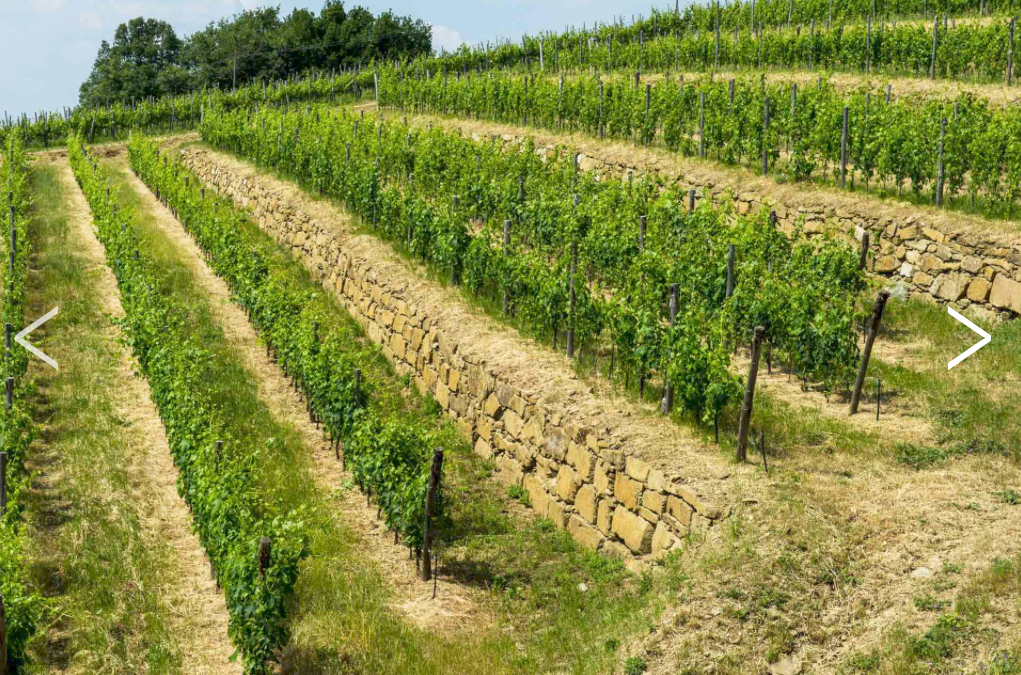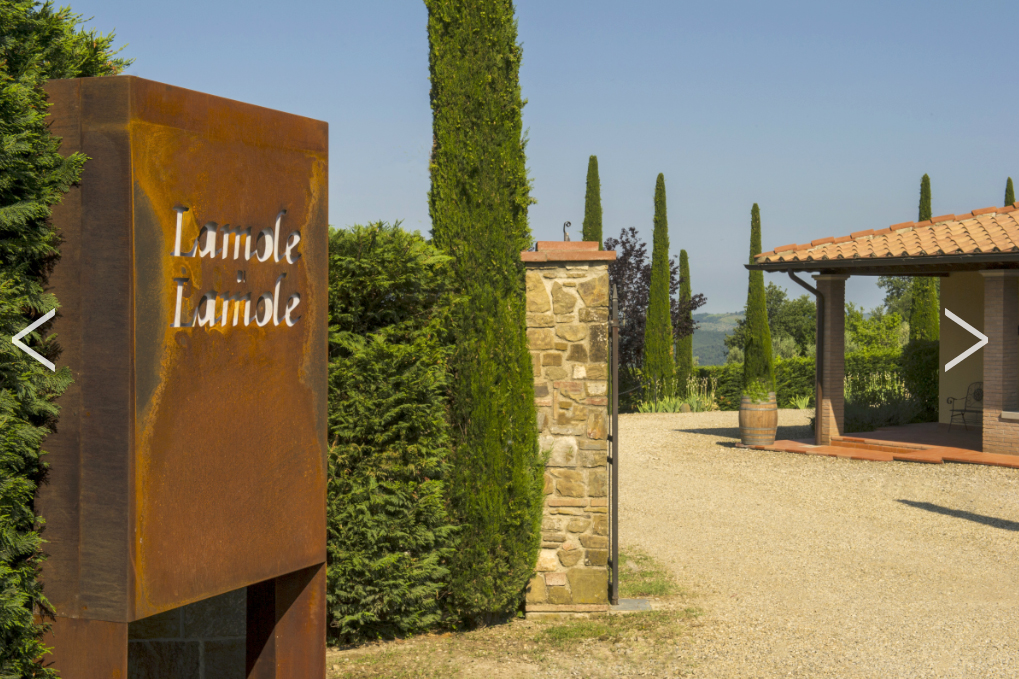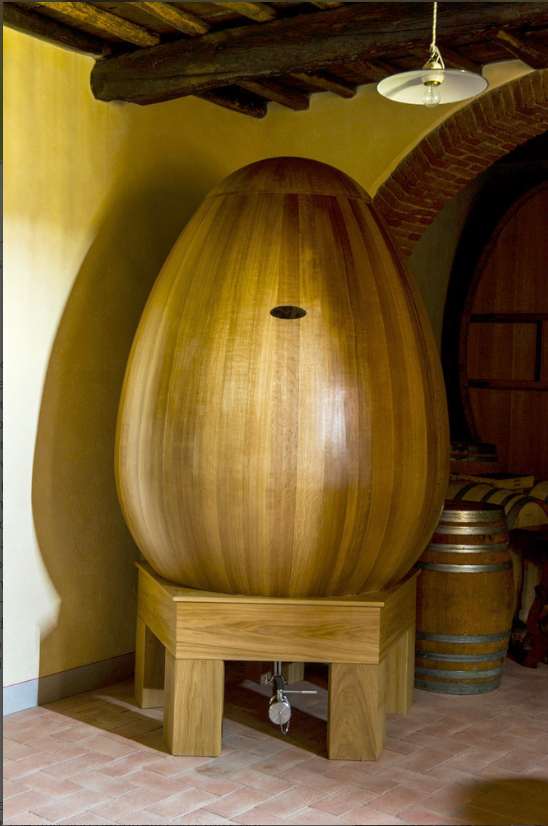Medium ruby color; earth, cherry, potpourri on the nose; black cherry, redcurrant, raspberry, chocolate, leather, plum on the palate.
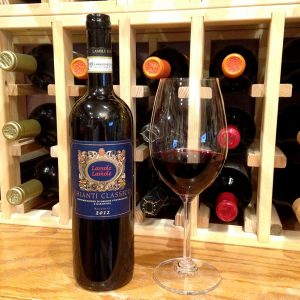
Dry; bright acidity; dense, full body, chunky, warm, nicely textured in the mouth. Austere tannins and tight focus, so decanting is strongly advised. Bold fruit from warm vintage means less nuance—but this is sangiovese, so go with the big fruitiness here and wait for cooler vintage later. Two years in new French oak barrels gives it some smokey oak, but that is not dominant flavor characteristic. Mostly sangiovese grapes with small amount of canaiolo. Canaiolo is classic blender in Chianti—actually a legal requirement—to add fruitiness and soften tannins without affecting aroma. The winery website and tech sheets do not reveal the percentage of canaiolo, but 5% is common and likely in this bottle.
The hamlet of Lamole south of Florence is a commune of Greve in Chianti. It first saw vineyards during Roman times. By the Middle Ages wine production was important enough to be protected by the Gherardini family, and ruins of their 14th century castle remain—today’s winery stands on top of one of the castle’s storehouses.
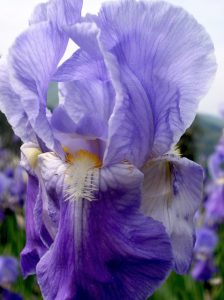
In the 1800s, Lamole was cited as one of the cradles of fine Chianti. Then industrialization drew away laborers and the region lay fallow except for handful of tenacious farmers. The Santa Margherita Wine Group changed things beginning in 1993, restoring vineyards, terraces, replanting the Florentine iris (the iris is the symbol of Florence) and other local species, and bringing organic farming practices to vineyards and olive groves.
Lamole di Lamole has clear commitment to eco-friendly, sustainable, and vegan-friendly production. Compost is made from pruned vegetation to feed the soil. They use organic land management practices and in-ground irrigation to conserve water. For this Chianti Classico they use “extreme organic farming” to eliminate the need for conventional chemical pesticides. They anticipate global organic certification soon.
Addressing vegan concerns, several years ago they abandoned the use of all animal byproducts (such as egg whites for fining) and use only vegan-friendly bentonite clay, yeast-derived and vegetable-derived products during filtration. In the energy field, they are on target to have their wineries 100% powered by renewable sources, primarily through commitment to solar energy. Operations are centered in one location to reduce transportation costs, including production of their own bottles on site—65% of their green glass bottles are made from recycled materials.
Lamole di Lamole Chianti Classico Riserva DOCG 2012 is rich, round, fruity, big. Substantial tannins make this suitable for long aging, or for decanting if you are drinking it young—and six years old is young for a Chianti like this. Pair with richer red meats, grilled steaks, barbecue, salted pork, wild game, pasta with tomato-based sauces, lasagna, pizza, roasted vegetables, flavorful cheese. $21-31
